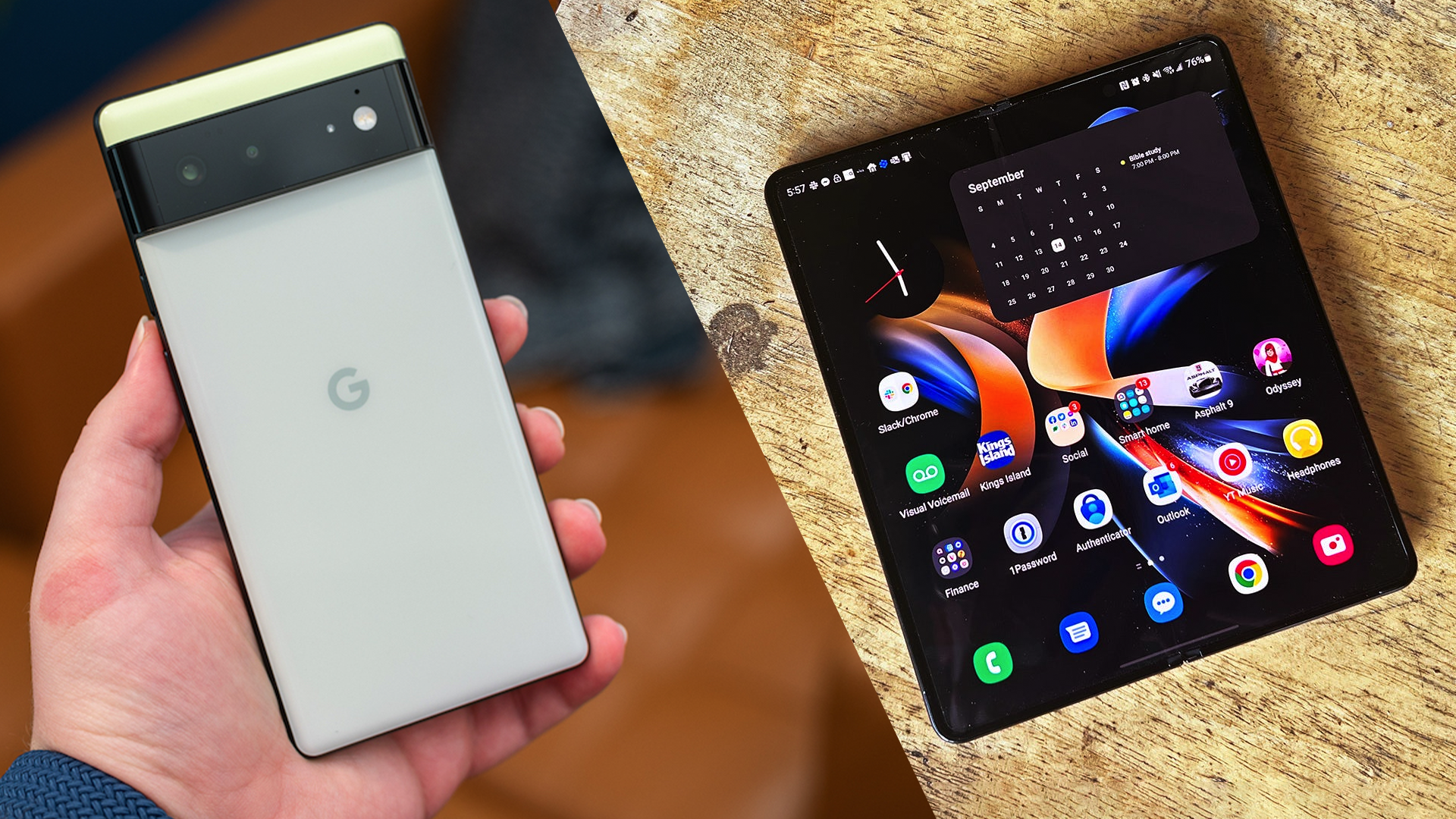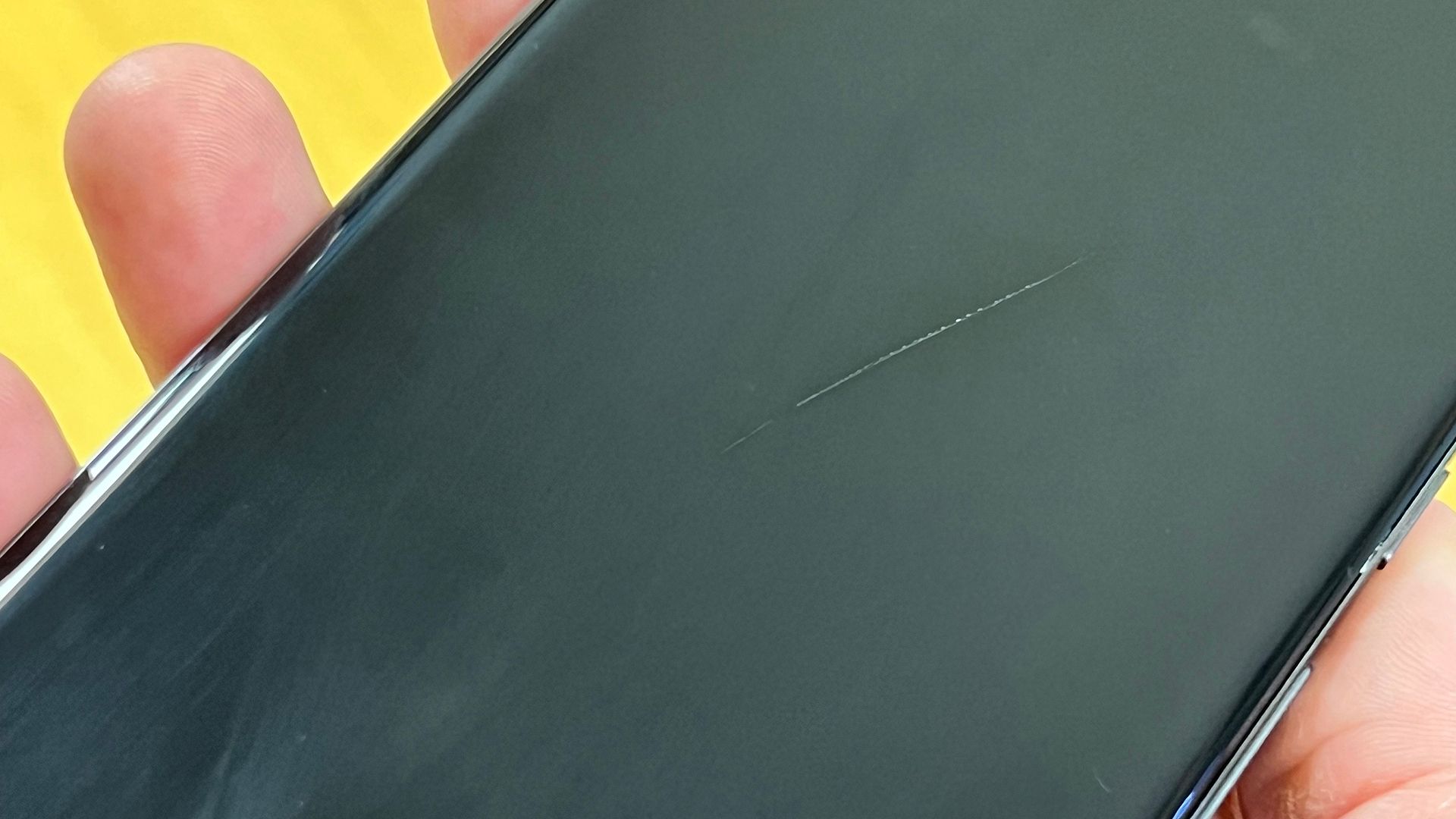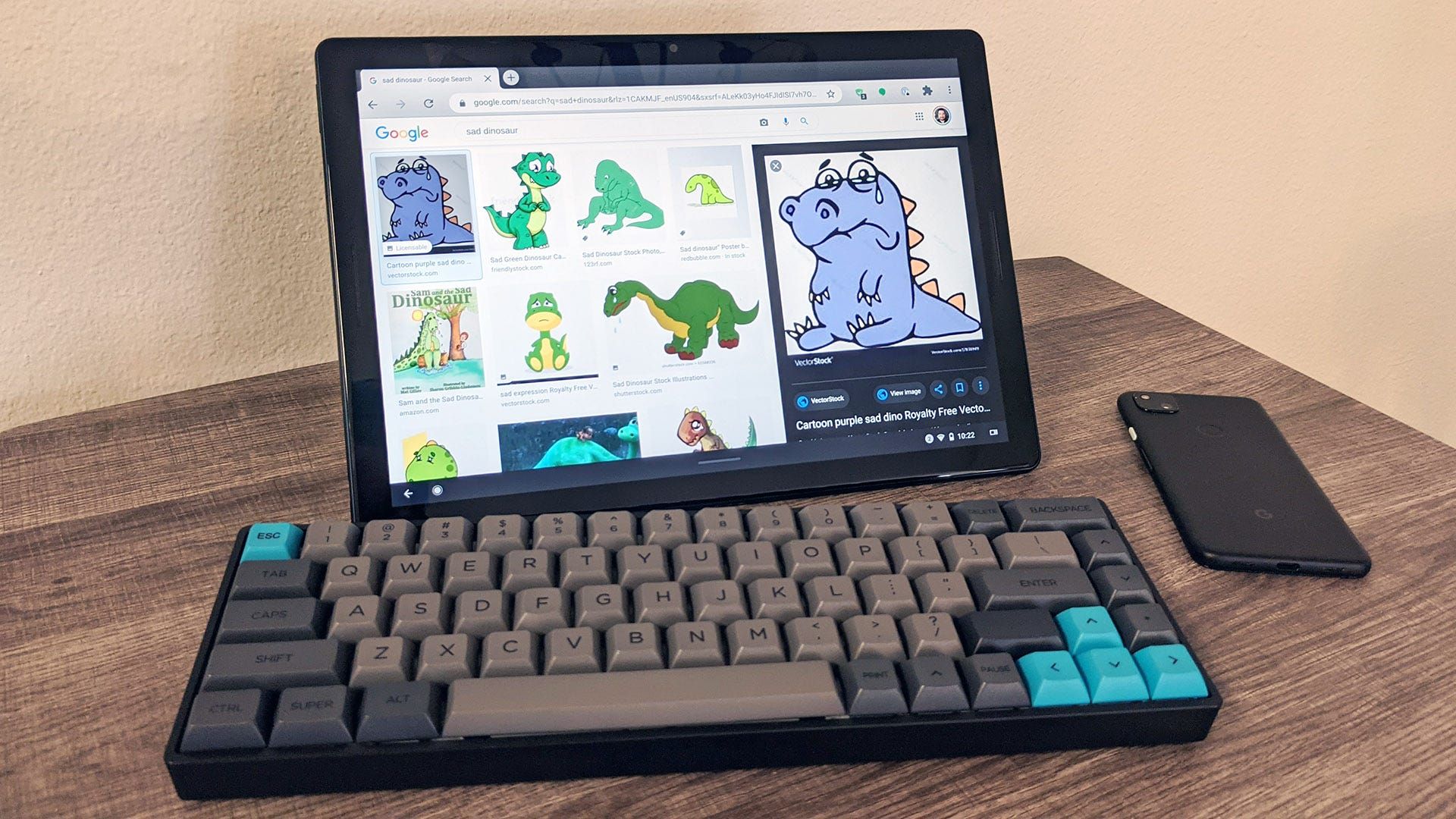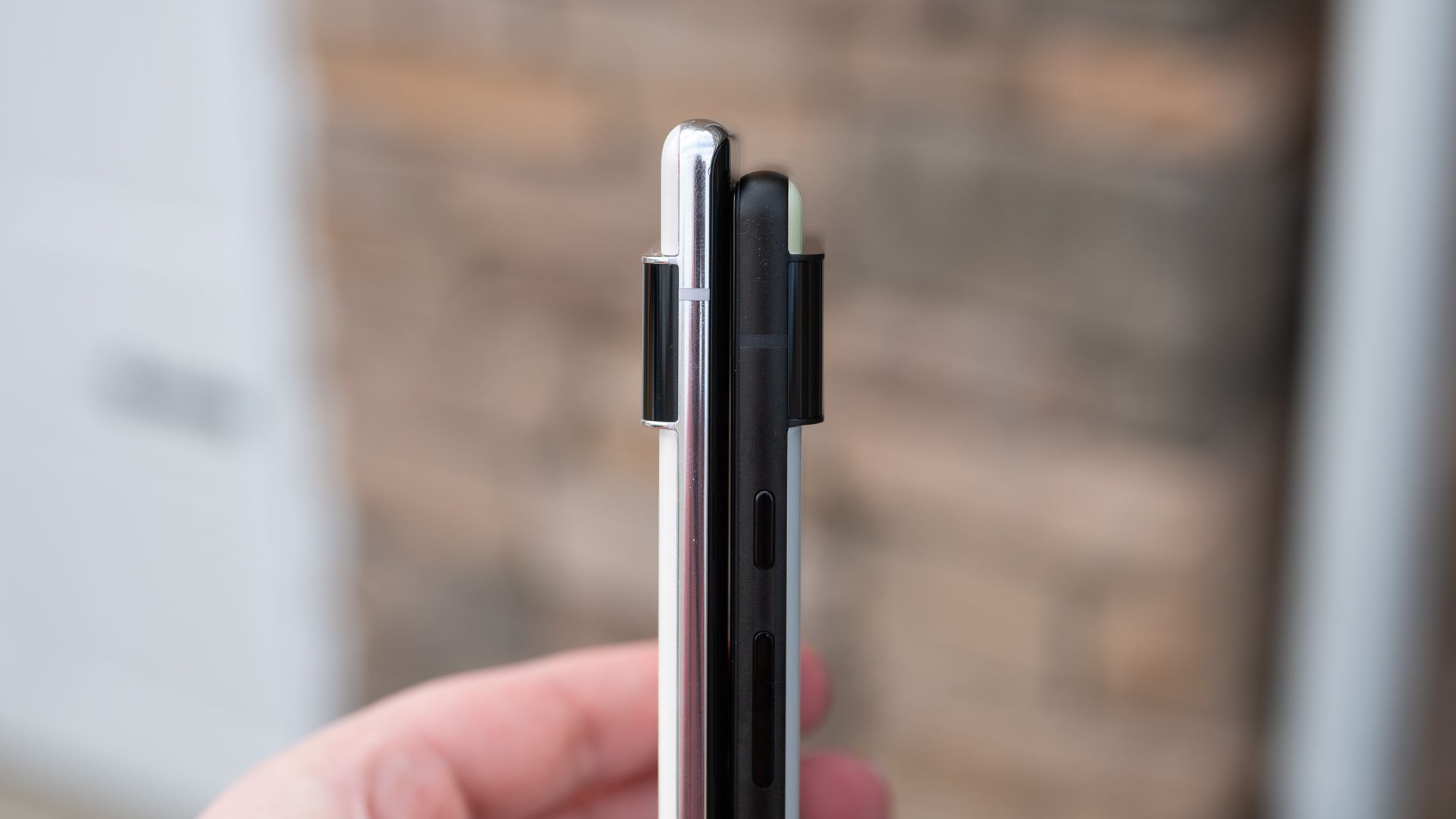Quick Links
Key Takeaways
Based on what we know today, the Pixel Fold looks like a bad idea. It will have a hard time competing with the Galaxy Z Fold's software and hardware, and really, Google's history with tablets doesn't inspire much confidence.
We've endured several years of rumors related to the "Pixel Fold," a smartphone that Google hasn't publicly announced or acknowledged. And while the hype for Google's first foldable continues to build, I'm beginning to worry that this device is a bad idea.
We Don't Need a Galaxy Z Fold Clone
From what we can tell, the Pixel Fold will launch in late 2023, possibly under the name "Pixel Notepad." Leaks suggest that Google will reveal the phone on May 10th at the I/O conference, though there's a decent chance that Google's Bard AI chatbot will be the star of this event, forcing a delayed Pixel Fold debut.
Still, we know a lot about this phone. Recent leaks from Front Page Tech and OnLeaks describe a device with a 7.68-inch foldable display, plus a 5.79-inch cover display. The foldable inner screen is manufactured by Samsung, and naturally, it's the same size as the Galaxy Z Fold 4's inner display.
These leaks are corroborated by dummy phone models, which are created during product development for internal testing (and third-party accessories---phone cases and such). Dave2D showed a Pixel Fold dummy in a recent YouTube video, and interestingly, this dummy measures roughly 158.7 x 139.7 x 5.7mm when in tablet mode.
To no surprise, these measurements are practically identical to that of the Galaxy Z Fold 4. The Pixel Fold is simply 9mm wider than Samsung's flagship foldable (possibly due to bezels). Additionally, the Pixel Fold has an 8.33mm-thick camera bump, which is thicker than what you'll find on the Z Fold 4. (It may also be heavier than the Galaxy Z Fold, oddly enough.)
So, from a physical standpoint, Google is working on a clone of the Galaxy Z Fold. These phones could even have the same price tag, as the Pixel Fold is expected to cost a whopping $1,800.
There are obviously some differences between these devices (including differences that we may not know yet). The Pixel Fold will use a Tensor chipset, for instance, and it won't run Samsung's proprietary "One UI." It should also offer some exclusive features, similar to other Pixel phones.
But Google's Tensor chipsets don't match the power of the latest Snapdragon processors---the Pixel Fold may seem underpowered when compared to the Galaxy Z Fold. It seems that the only standout feature may be Google's camera technology, which could punch past the mediocre cameras in Samsung's Galaxy Z Fold. But if that's the only major difference, why even bother with a foldable phone?
I should reiterate that these are leaks and rumors. We aren't 100% certain that any of this information is true. (That said, I'll be surprised and happy if these leaks are incorrect.)
Google's Hardware Isn't Very Durable
Foldable phones are still too fragile. This is not a controversial opinion---it's a fact. Because foldable screens are made of plastic, they are incredibly easy to scratch or destroy. The addition of a hinge creates an extra point of failure, and because foldable phones contain several air gaps, they lack the dust and water resistance of traditional phones.
Samsung has spent half a decade trying to work out these problems. And thanks to real-world feedback (and a ton of money), Samsung has made some genuine headroom in this area. Its newest foldables are significantly more durable than their first-generation counterparts. But even with these improvements, Samsung's foldable phones are still too fragile.
If Google releases a foldable phone every year, it will find unique ways to address durability. But I don't expect this kind of innovation in a first-generation foldable. In fact, I don't believe that Google can match the durability of Samsung's foldables, as the latest Pixel smartphones are plagued by odd physical weaknesses.
When the cold weather came around, Pixel 7 owners reported that their cameras lenses randomly shattered. And in our review of the Pixel 7 Pro, we found that its screen is ridiculously easy to scratch---something that was confirmed by JerryRigEverything on YouTube.
The last two generations of Pixel phones also have odd software problems. Some users report that their display won't work, while others have trouble with the fingerprint reader. If Google is already struggling with these basic smartphones, I don't have much hope for its first foldable.
To be clear, I'm a very big fan of Google's Pixel phones. I'd rather buy the Pixel 7 than any other Android device, as it's incredibly affordable, it has a ton of exclusive features, and its cameras knock the socks off the competition. But while I can easily tolerate Google's quirky engineering in a $600 device, it isn't something I want to deal with in a $1,800 foldable.
Google Has Always Neglected Tablets
For whatever reason, Google's interest in tablets only lasts for a few months at a time. It's like clockwork; Google announces a new tablet and promises some tablet-focused improvements for Android and Chrome OS. Then, after the dust settles, Google pretends that tablets don't exist. Rinse and repeat.
The Nexus 7 tablet was a resounding success. But in the decade since the Nexus 7's launch (yes, it's been that long), Google has failed to produce a golden egg. Do you remember the Pixel C? How about the Pixel Slate? And have you heard anything about the Pixel Tablet that's supposed to launch in 2023?
I'm worried that this neglect will extend to the Pixel Fold. Large-screen foldable devices are basically tablets, and the Android OS isn't completely optimized for a tablet form factor. This is mainly an app problem---many apps, especially creative and productivity apps, simply don't work on Android tablets. (That said, Android also lacks some of the useful features you'll find on an iPad.)
Samsung sells the best Android tablets, and its foldables are pretty solid from a software standpoint. But this is due to Samsung's proprietary "One UI" Android interface. Instead of waiting for Google to fix Android's problems, Samsung uses One UI to fix these problems.
The latest Android releases are clearly inspired by One UI. They also improve on tablet and foldable functionality. But can Google reliably invest the time and money into foldable phone software?
The Dang Price
Aside from a few outliers, Google's smartphones are fantastic. But the most appealing part of Google's phones, at least, in my opinion, is the pricing. The Google Pixel 7 starts at just $600, and the Pixel 7a is just $450. That's nearly half of what you'll pay for the latest Samsung or Apple phone.
The Pixel Fold is expected to launch at $1,800. And that's just the base model---if you want a storage upgrade, you might end up paying $2,000 or more.
Foldable phones are still very niche and cutting-edge. So, extreme pricing makes sense, and frankly, it prevents a lot of people from buying a phone that they'll end up breaking. But if the rumored $1,800 price tag is true, Google will have a hard time explaining how this phone is a better purchase than the Galaxy Z Fold.
Of course, I'm also concerned that Google will stray away from affordable pricing. Smartphone brands are slowly pivoting toward the premium device market, as expensive flagships tend to outsell cheaper handsets (this is partially due to the recent economic downturn, though I suspect that it's also a result of predatory "buy now, pay later" lending). The Pixel Fold could help Google burrow its way into the premium device market, which is something I'd like the company to avoid.
I hope that all the Pixel Fold rumors are false. Google has an opportunity to innovate and create some competition within the smartphone world. But based on what we know, the Pixel Fold looks like an underwhelming and expensive clone of the Galaxy Z Fold. And even if the Pixel Fold is a decent device, Google's neglectful habits could sabotage the foldable.




